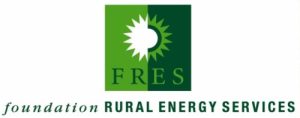FRES – Finance and commissioning of 8 solar PV power plants at rural trading hubs in Mali and mini-grid infrastructure at eight villages
Who, What & Where
- Foundation Rural Energy Services (FRES)
- Finance and commissioning of 8 solar PV power plants (50-150kWp) at rural trading hubs in Mali + Mini-grid infrastructure at 8 villages (new grid infrastructure and grid extension at other sites with existing (diesel) mini-grids
- Segou and Sikasso regions of Mali
- Project is Ongoing (the solar and hybrid mini-grids were built between 2007 and 2010)
The Foundation
FRES’ mission is to provide electricity to rural areas of developing countries where there is no access to grid electricity at present or in the foreseeable future and does so mainly through the use of solar energy. FRES establishes local utility companies in rural sub-Saharan Africa that provide affordable and sustainable access to electricity services in rural communities via a standardised business model. FRES currently has five companies, 230 local staff and over 35,000 customers in Mali, South Africa, Burkina Faso, Uganda and Guinea-Bissau.
FRES has 15 years of experience in the full range of activities relating to implementing rural electrification programmes with respect to mini-grids and solar home systems (SHS). The organisation also has a long-term business vision based on sustainable, long-term commitments and a standardised commercial business model that can be easily adapted, replicated and rolled out to new markets.
The Challenge
High cost of electricity production (via individual generators) for SMEs limits productivity and opportunities for business start-up and growth. Limited grid infrastructure or electricity generation capacity/intermittent supply and sharp increase in diesel fuel price characterise the local energy situation.
Opportunities for Renewables
FRES will expand its solar mini-grid activities in 2016 in Mali and in Guinea-Bissau.
Renewable Solution
FRES finances and commissions eight solar PV power plants (50–150 kWp) at rural trading hubs in Mali and mini-grid infrastructure at eight villages (new grid infrastructure and grid extension at other sites with existing (diesel) mini-grids. This comes to a total installed capacity of 550 kWp (combined total for eight PV mini-grids). The actual production level is 1,200 MWh/year (combined total for eight PV mini-grids). PV penetration ranges from 50 to 100% between the eight mini-grids. System configurations are largely PV/battery storage/diesel genset.
Project Financing & Management
Initial CAPEX was financed by FRES, Nuon and AMADER (Malian Rural Electrification Agency)/World Bank through grant financing. The model utilises consumption-based invoicing (0.38 EUR/kWh) and pre-payment for customers. Revenue from the project finances ongoing operations and replacements. Technical assistance and training for local technical staff from a grid network operator in the Netherlands is currently ongoing.
Project Outcome
1,160+ customers switched from diesel to PV hybrid minigrids, i.e. households and SME’s (e.g. tailors, bakeries, radio stations, banks, game rooms, pharmacies, ICT services, water supply and commerce).
Scale up of PV capacity will take place in 2017 to support growth in demand (approx. 10% annually) from new and existing customers. FRES/Yeelen Kura provide 4,023 mini-grid clients (households and SME) with electricity in Mali.

